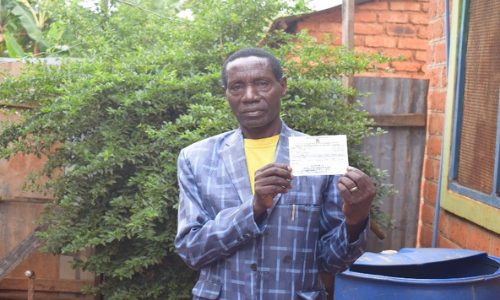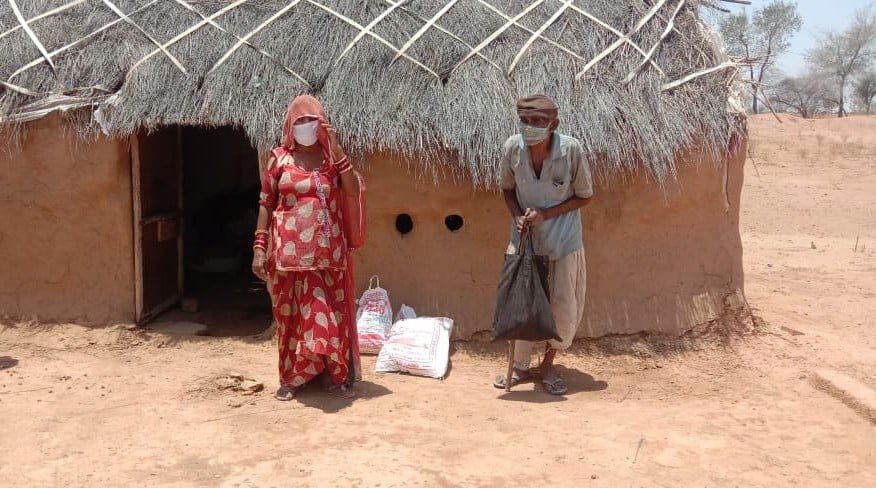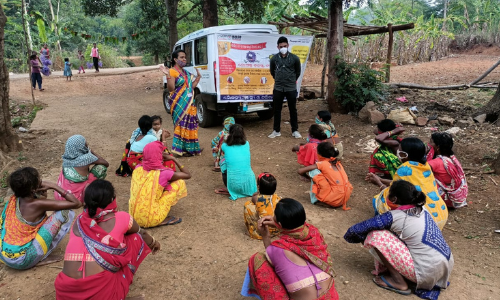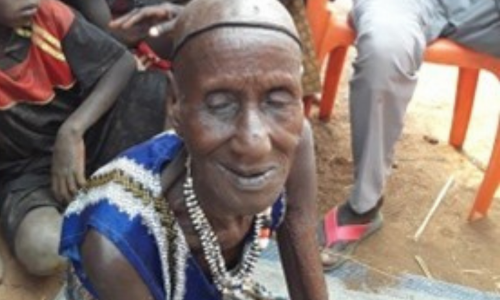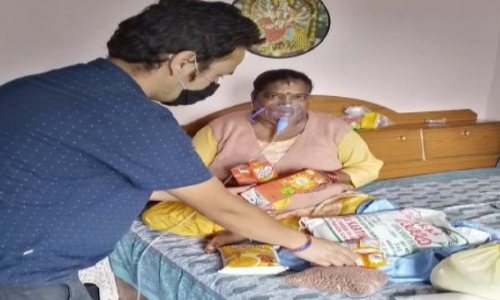Older people are at a high risk of COVID-19 transmission in Gaza, an overcrowded and poor area with a weak medical health system. It is predicted that the number of infected people will increase in the Gaza Strip due to movements between Israel, Gaza and Egypt.
There is an urgent need for preventive measures to eliminate risk of older people getting infected.
Eighty percent of deaths from coronavirus are being recorded in the over-50 age group and according to the Palestinian Central Bureau of Statistics, 60,000 older citizens are estimated in the Gaza Strip.
Between 2009 and 2016 we supported the El-Wedad Society for Community Rehabilitation (WSCR) to found the Bait Jdoudna Club (Grandparents House Club) which provided psychological, social, cultural, physical therapy and health care services to the older people.
Now, four years on we are once again working with WSCR to help older people in Gaza throughout the coronavirus pandemic.
We have identified over 11,000 people most vulnerable to COVID-19 and as a part of our response we are working to help older people who do not receive a pension and are suffering from chronic diseases in the EL-shate'e Refugee area of Gaza City; one of the most densely populated areas in the Gaza Strip.
EL-shate'e is the third largest refugee camp in Gaza, and also the most crowded.
This hugely exasperates the vulnerability of older people to coronavirus especially given that there is an ongoing protracted crisis in Gaza; years of war has meant that Gaza’s health system has been devastated, with fewer than 100 ventilators to serve a population of around 2 million people.
The city does not have enough hospitals, ICU beds, or mechanical ventilators to deal with a large scale outbreak of COVID-19. Additionally, the dangerously steep decline in the quality of life as a result of the Israeli blockade has undermined basic hygiene, most evident in the shortage of water and sewage treatment facilities, which further hampers efforts to prevent the virus’s spread.
Our work to help prevent the spread of the virus includes:
- Printing and distributing 250 copies of guidance and advice on COVID-19 for older people to individuals while 50 copies are being sent to pharmacies, supermarkets and vegetable and fruit shops in highly populated areas. The guidance and advice will also be sent out by email, on social media and available on the WSCR website to reach as many older people and their families as possible.
- Three thousand people will be contacted by phone and sent awareness text messages and 2000 older people, including those with disabilities, have received calls as part of the “PSS system,” where volunteers call older men and women and have conversations with them, providing a supportive environment. Through this system, older people within Gaza's community will feel less isolated and have their immediate needs for information and COVID-19 protection met.
- Seventy community health workers will visit households to raise COVID-19 awareness amongst 5000 people in the targeted areas. During these visits, key messages will be communicated to increase preventative action and reduce the risk of a coronavirus outbreak within the community as possible.
- Distributing 250 hygiene kits which include hand sanitiser, alcohol-based soap, antimicrobial wipes, masks and gloves to older people and members of the Grandparents House Club and other high-risk individuals.
- Holding awareness sessions with older people led by WSCR staff along with a representative from Ministry of Healthwith on how older people can protect themselves and safely use the items included in the hygiene kits.
- A further 10,000 people will benefit from an additional 2,000 hygiene kits that will be distributed in the Gaza strip to households with older and at risk individuals
- Thirty doctors, nurses, health workers and outreach workers from WSCR will be trained on safety measures and supporting older people with COVID-19. This will be carried out through online training, on-the-job training and in targeted facilities. Additionally, PPE is being given to health workers, staff and volunteers for protection and to send a strong community message around COVID-19 prevention.
- Using radio slots providing guidance and advice specifically on how older people can protect themselves have been organised with two local radio stations (Gaza FM & El-Shaab radio) with two slots broadcasted a total of 100 times each, four times daily for 25 days. Older people in the Gaza Strip rely on radio as their main source of information, particularly as they have limited access to modern technologies.
- Through mass communication including radio and social media, we will reach 50,000 people on protection and prevention measures for coronavirus.
Read stories from the ground in Gaza
